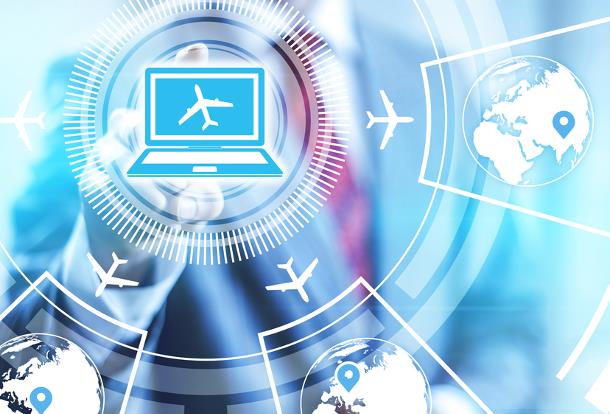Jay Baer, a digital marketing consultant in Bloomington, Ind., spends half his time traveling on business. That means he also has to spend hours each week coordinating that travel.
Help has arrived with the Pana app, which employs artificial intelligence to aid customers.
Virtual travel assistant services — some from established companies like Facebook, IBM and Expedia, and others from new entrants like Pana and HelloGbye — are now popping up worldwide, just as major hotel chains like Starwood and Hilton are incorporating robots into their everyday operations.
Many of the virtual assistant services use artificial intelligence, a branch of computer science that simulates intelligent human behavior. Some respond to questions posed by travelers, either in live speech or digitally, while some, like Pana, rely on additional input by humans to provide answers.
Although many services are now in their infancy, they are expected to change the way travel is planned in the not-too-distant future.
The Pana app lets users chat, in conversational language, about booking travel and helps if they encounter a delay or cancellation. Responses are provided by a team of travel agents who are on duty round the clock and have access to artificial intelligence to gather information customized for the traveler.
Mr. Baer, who has been a Pana devotee since last year and recently signed a contract for his staff of 11 to use it, relies on it primarily for tips on places he visits and to rebook when his schedule changes or he encounters an unexpected delay.
Like many in the travel industry, Miriam Moscovici, director of emerging technologies for BCD Travel, a travel management company, predicts that within a year “lower-priority tasks will be handled by self-service artificial intelligence, which will free up human travel agents to do more of the intense work required.”
In 2011, artificial intelligence came into the limelight in the United States when the Watson computer, made by IBM, beat human competitors in a “Jeopardy” match. IBM’s artificial intelligence efforts are also at the forefront of travel-related initiatives. Two years ago, it invested in and began working with WayBlazer, a company whose co-founder, Terrell Jones, helped start the travel websites Travelocity and Kayak.
Using Watson’s natural-language capabilities and other cognitive computing technology, WayBlazer makes customized recommendations for travelers planning trips to Austin, Tex. The Leading Hotels of the World, a luxury-hotel marketing organization, is using WayBlazer to help customers choose accommodations based on their tastes, through its website.
WayBlazer and Watson’s cognitive technology are the brains behind Connie, a robot being tested at the Hilton in McLean, Va., outside Washington. Connie answers guests’ questions about amenities and services, and also suggests local attractions.
Norm Rose, an analyst for Phocuswright, a travel research company, predicted that artificial intelligence would help simplify and automate travel planning by providing quicker responses and more relevant content.
But noting that artificial intelligence is not yet capable of completely replacing human interactions, he warned it could also alienate travelers if a travel company used it but was unable to answer their questions.
He said artificial intelligence systems need to understand the vocabulary used in travel to be successful, but still may have difficulty helping travelers if their requests are complex. He also said some emerging systems are arranging complex itineraries that contain multiple flights or involve flights and hotels, and predicted many will eventually be able to handle both.
Expedia is among a few dozen companies and organizations that Facebook recently said would use a new chatbot on the social network’s Messenger platform. This lets users pose questions in digital chats and employs artificial intelligence-powered systems to provide answers. Expedia is testing responding to hotel booking requests via Messenger.
Passengers of KLM Royal Dutch Airlines, an earlier partner on Messenger, can now use the platform to confirm bookings and get flight status updates. The airline also plans to offer bookings through Messenger. And since 2011, the airline has been testing a 6-foot-3 robot, Spencer, at Amsterdam Schiphol Airport, its home base. In its most recent trial, which ended in March, Spencer escorted travelers to their gates.
Robots are also being used at select Starwood, InterContinental and Marriott hotels in the United States and are being tested in Europe by SNCF, the French railway, and on cruise ships operated by Costa and Aida.
Skyscanner, a travel search engine, this year developed a voice-enabled app for Alexa, the cloud-based voice service for the Echo from Amazon, to search for flights. Alexa also recently began working with Kayak to help users search for flights, hotels, rental cars and destinations, though no booking is done through it.
HelloGBye will begin testing an app this summer that lets users type or speak into their phone and create an itinerary with flights and hotel accommodations. The app can book travel for as many as nine people at once.
In November, Hipmunk, which has helped travelers research and book travel online since 2010, began testing a free, personalized virtual travel-planning assistant, Hello Hipmunk, powered by artificial intelligence. It provides help via email. Users can also give Hello Hipmunk permission to access their Google calendar, which it then periodically scans for events requiring travel and proactively provides booking options.
The Pana app answers many users’ questions in less than a minute, said Devon Tivona, the company’s chief executive, and agents notify customers if more time is required. Pana is geared toward people who frequently travel for business. Its monthly fees range from $19 for one person to $449 for companies with fewer than 200 employees. Introduced in a beta test last summer, it formally began operating in April and works with thousands of individual travelers and fewer than 100 businesses.
Mr. Baer, the digital marketing consultant, said Pana is “so reasonably priced and so fast, if you travel any more than once a month, it’s literally a no-brainer to buy this.” His company pays $250 a month for its services.
Henry Harteveldt, a travel analyst for Atmosphere Research, predicted that artificial intelligence would make shopping for travel “more efficient, less time-consuming and more useful.”
Mr. Harteveldt said this would occur, in part, because travel-planning tools that employ artificial intelligence would make use of travelers’ relevant data, such as their home city and age, and would not require them to use technical terms, like airport codes, as many sellers now do. The result, he added, would be tools that come up with suggestions “at lightning speed that are contextually relevant.”
Read original article




